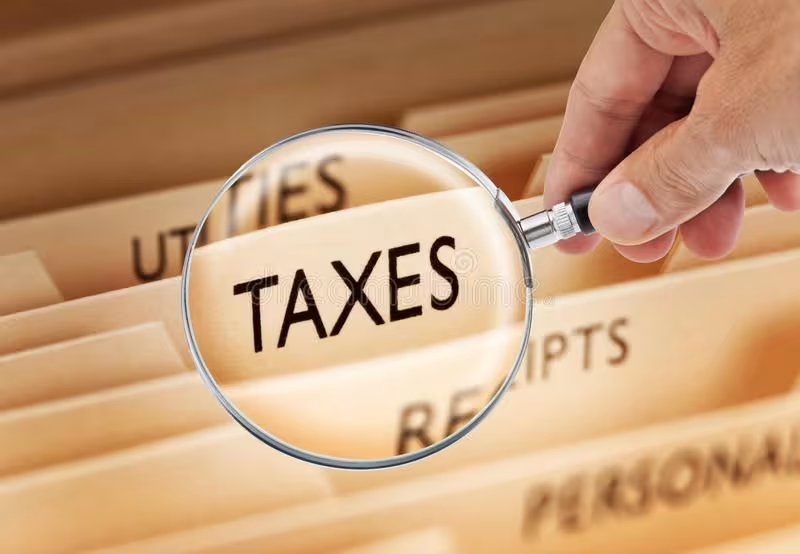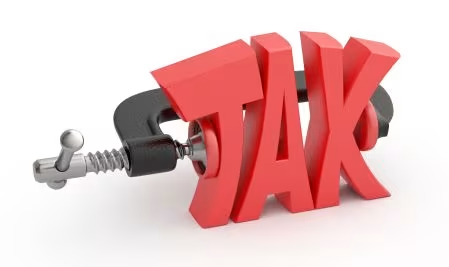Nigeria Tax Reform: 50 Exemptions for Low-Income Earners and SMEs from 2026
The Presidential Fiscal Policy and Tax Reforms Committee, led by Mr. Taiwo Oyedele, has unveiled a comprehensive package of 50 tax exemptions and reliefs designed to significantly alleviate the financial pressure on low-income earners, average taxpayers, and small businesses across Nigeria.

Touted as “one of the most people-focused tax reforms in Nigeria’s recent history,” these changes are scheduled to take effect on January 1, 2026. The central goal is to enhance fairness, simplicity, and compliance by reducing the tax burden on the poor and productive sectors of the economy.
Key Highlights of Reliefs for Individuals (PAYE)
The reforms offer substantial relief to the average worker, ensuring that those at the bottom of the income scale are fully protected from taxation:
Full Minimum Wage Exemption: Individuals earning the national minimum wage or less will be completely exempt from Personal Income Tax (PAYE).
Tax-Free Threshold: Annual gross income up to ₦1.2 million (or approximately ₦800,000 in taxable income) will be entirely tax-free.
Reduced Rates: Taxpayers earning up to ₦20 million annually will benefit from reduced PAYE rates.
New Allowable Deductions: The reforms introduce a crucial Rent Relief of up to ₦500,000 (equivalent to 20% of annual rent) as an allowable deduction.
Retirement Security: All pensions, gratuities, and retirement benefits under the Pension Reform Act remain tax-exempt, alongside compensation for loss of employment up to ₦50 million.

Reliefs for Businesses and Startups (CIT and VAT)
The framework heavily incentivizes small businesses and strategic sectors, moving the focus away from taxing small entities toward taxing consumption and larger corporations.
Companies Income Tax (CIT) & Development Levy
0% CIT for Small Companies: Small companies with an annual turnover below ₦100 million and total fixed assets not exceeding ₦250 million will pay 0% CIT.
Startup Exemptions: Classified “eligible” startups will also receive CIT exemptions.
Incentivizing Welfare: Companies will be granted a 50% compensation relief for salary increases or transport subsidies provided to low-income workers.
Agricultural Boost: Agricultural businesses (including crop production, livestock, and dairy) will enjoy a five-year tax holiday.
Development Levy Waiver: Small companies will be exempt from the 4% Development Levy.
Value Added Tax (VAT) Exemptions (0% Status)
The reforms protect consumers from paying VAT on essential goods and services:
Basic Needs: Basic food items, rent, education materials, healthcare services, and pharmaceuticals will all carry 0% or exempt VAT status.
Small Business VAT Threshold: Small businesses earning less than ₦100 million annually will not charge VAT on their goods and services.
Strategic Exemptions: Key items like agricultural inputs, baby products, sanitary towels, disability aids, and electric vehicles (and their parts) are all listed as VAT-exempt to promote sustainable development and public health.

Streamlining Other Taxes
The package also targets two other critical taxes for simplification and relief:
| Tax Category | Exemption / Relief Highlight |
|---|---|
| Capital Gains Tax (CGT) | Exemptions on sales of owner-occupied homes and personal effects up to ₦5 million. Share gains below ₦150 million annually will also be exempt. |
| Stamp Duties | Electronic transfers below ₦10,000, salary payments, and intra-bank transfers are now exempt, simplifying daily commerce. |
| Withholding Tax (WHT) | Small companies, manufacturers, and agricultural businesses are exempt from WHT deductions on their income and payments to suppliers, immediately boosting their working capital. |
The Call for Responsible Tax Communication
Mr. Oyedele also launched an initiative to combat the spread of tax misinformation by training credible social media creators. He emphasized that accurate information empowers citizens and builds trust, reinforcing the idea that the success of these reforms relies not just on law, but on clear communication and public understanding.
These sweeping changes represent a paradigm shift, moving the fiscal system toward greater equity and support for local industry, though the complexity of implementing all 50 reliefs simultaneously remains the major challenge before the January 1, 2026, deadline.
Since these reliefs aim to boost small businesses and individual savings, would you like a detailed analysis of how the new VAT exemptions might affect the inflation rate in the short term?
Join Our Social Media Channels:
WhatsApp: NaijaEyes
Facebook: NaijaEyes
Twitter: NaijaEyes
Instagram: NaijaEyes
TikTok: NaijaEyes
READ THE LATEST BUSINESS NEWS.




